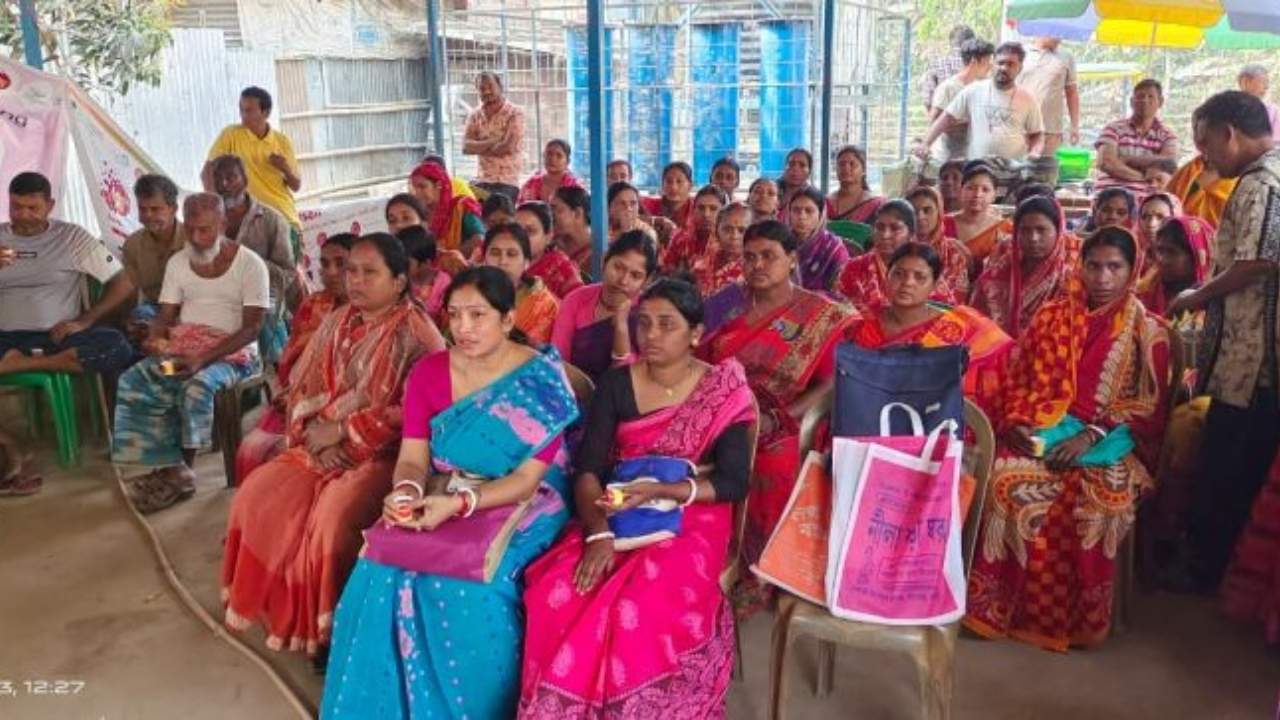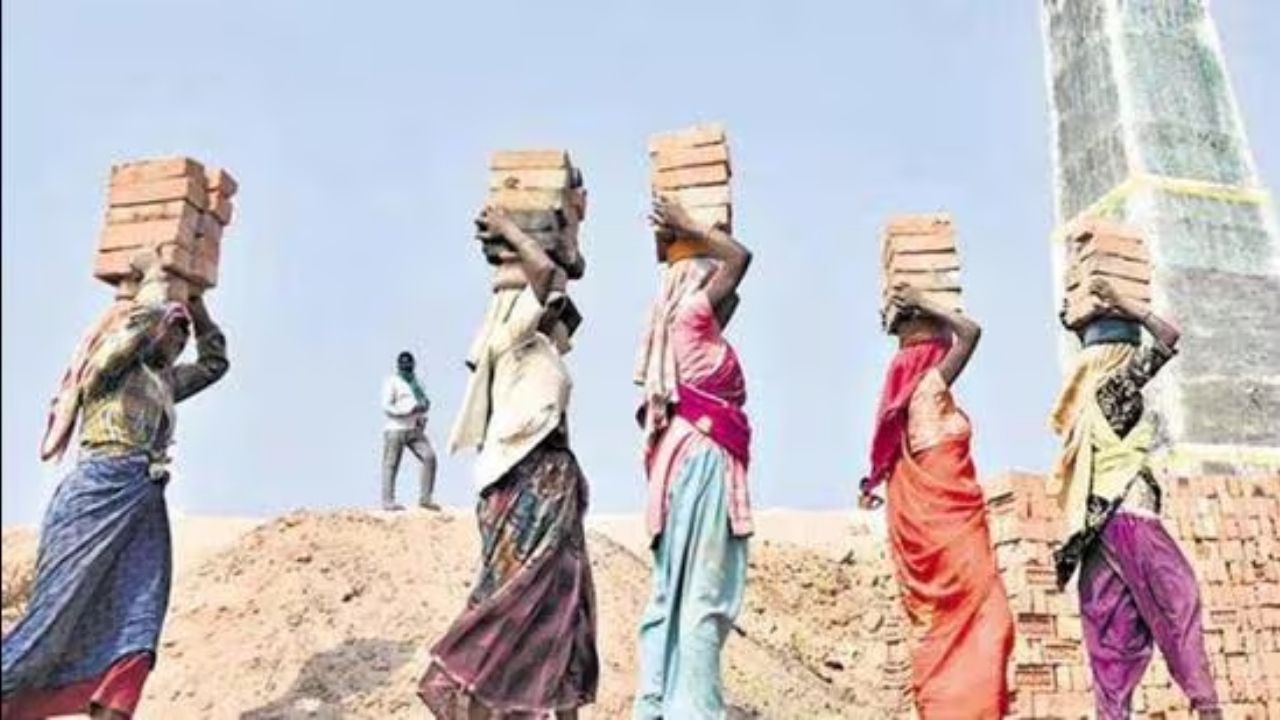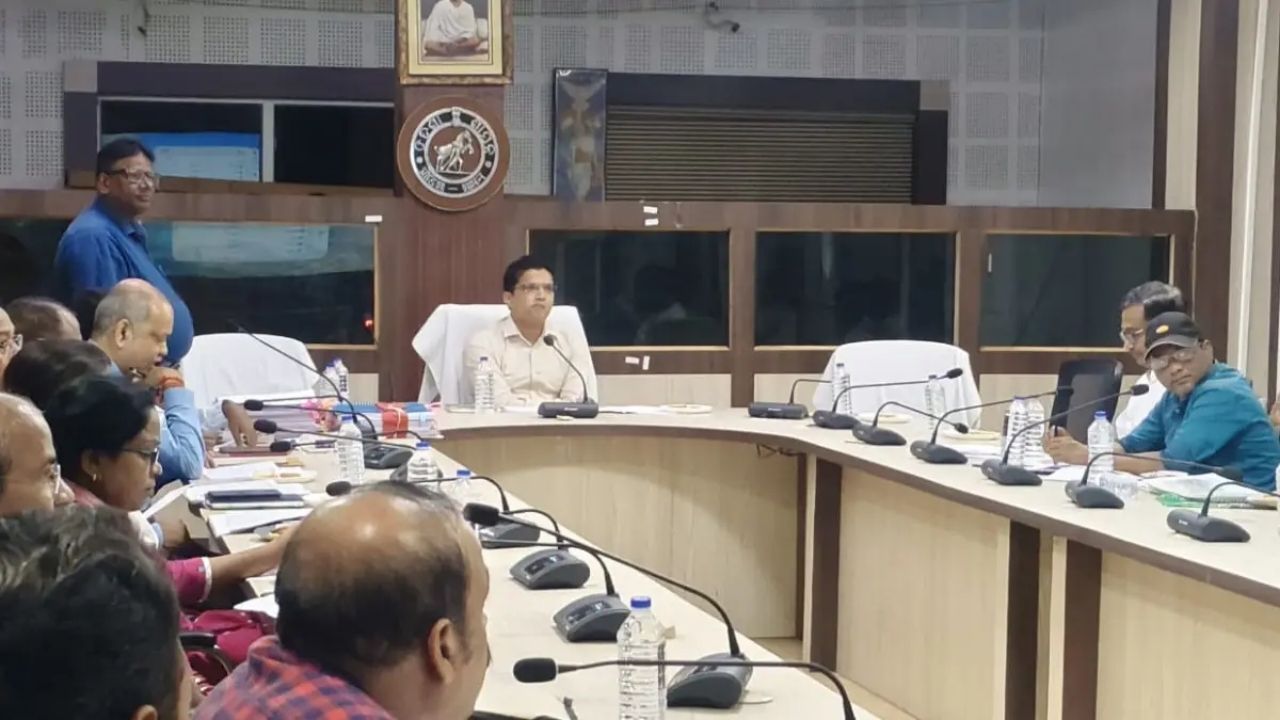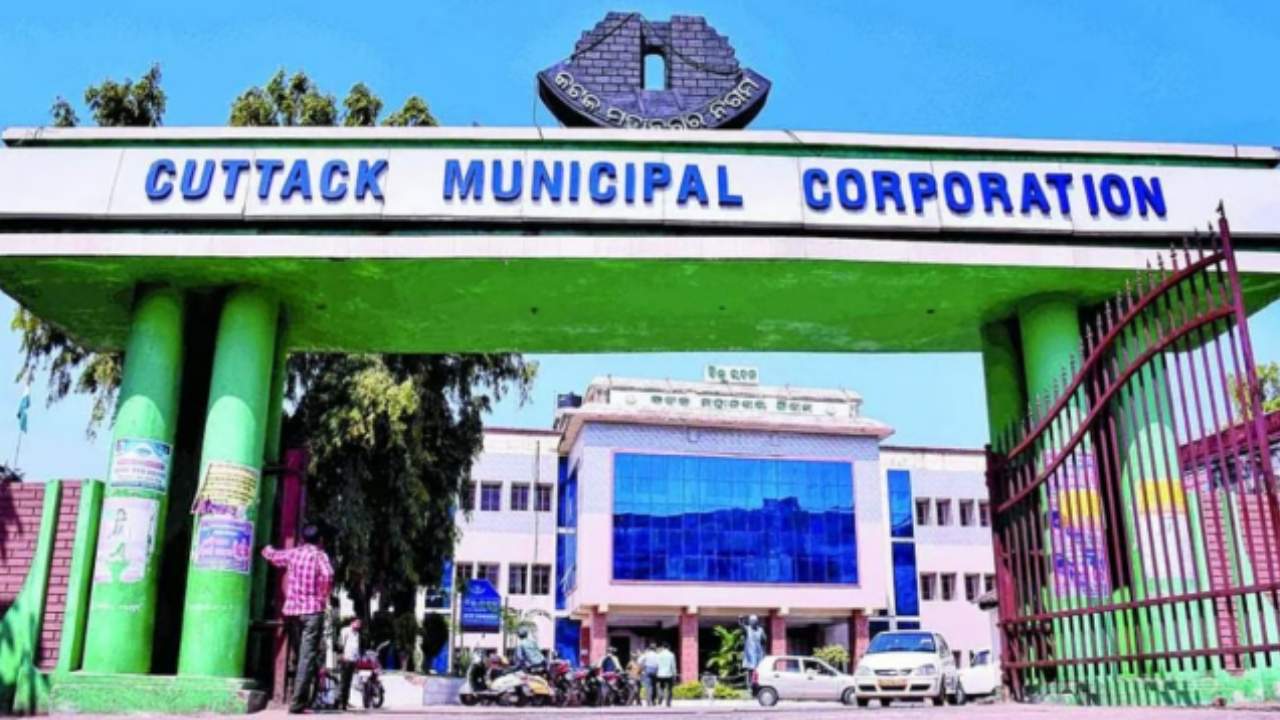In recent news that has sent shockwaves through the financial community, a Punjab National Bank (PNB) branch manager in Malkangiri, Odisha, is under investigation for allegedly embezzling a significant amount of funds from Self-Help Groups (SHGs). The accused, Mohan Kumar, is alleged to have misappropriated nearly ₹6 lakh intended for loans for women-led SHGs in the region. This scandal highlights concerns around banking integrity, the misuse of financial services intended to empower marginalized groups, and the ongoing need for more robust financial oversight and transparency.
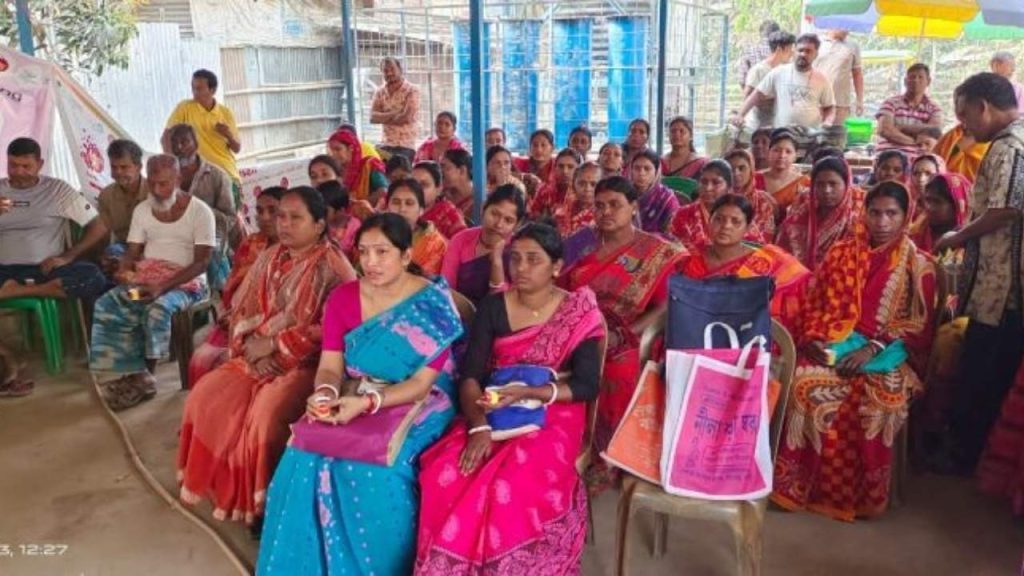
PNB Manager in Malkangiri Accused of Misappropriating SHG Funds
| Topic | Details |
|---|---|
| Accused | Mohan Kumar, PNB Branch Manager in Malkangiri, Odisha |
| Amount Allegedly Embezzled | ₹6 Lakh |
| SHGs Affected | Women-led SHGs, including Ma Kali, Jai Guru, and Radharani groups |
| Protest | 20-25 SHGs staged a protest outside the bank, leading to temporary closure of the branch |
| Current Status | Internal investigation ongoing; PNB has suspended the accused manager and pledged full cooperation |
| Official Website for Updates | PNB Official Site |
The ongoing investigation into the PNB Malkangiri scandal is a stark reminder of the vulnerabilities that can exist in financial institutions, especially when they serve marginalized communities. While the system is designed to empower, incidents like this can significantly undermine the trust these communities place in financial systems. Moving forward, both the banking sector and government authorities need to take steps to ensure better financial oversight and transparency, particularly for programs intended to support women and other vulnerable groups. This case could serve as a catalyst for positive change in the way financial institutions handle community loans and support.
The Scandal Unfolds: A Closer Look at the Situation
On a chilly morning in Malkangiri, a small town in the Indian state of Odisha, local members of several SHGs gathered outside the Punjab National Bank (PNB) branch to raise their voices. These SHGs, consisting mostly of women, had been given the promise of financial support through loans to help them improve their livelihoods. The loans were intended to be a part of the bank’s initiative to empower women and promote economic development in rural areas. However, things took a turn for the worse when members realized that a portion of the promised funds was never disbursed to them.
It was discovered that ₹6 lakh had been withdrawn from the bank under the guise of loans, but only ₹3 lakh actually reached the hands of the SHGs. The missing funds were reportedly misappropriated by the branch manager, Mohan Kumar. SHG members had been led to believe that they were receiving full financial support for their businesses, but the reality was far different.

The Ripple Effect: How This Scandal Affects SHGs and Local Communities
The SHGs in question were part of a larger scheme designed to promote financial inclusion and support the livelihoods of women in rural areas. These groups had been working hard to build small businesses, save money, and support one another. But, as is often the case in communities with limited access to traditional banking services, many of the members had put their trust entirely in the bank to provide them with the financial backing they needed to succeed.
When the truth came out, the women felt not only financially betrayed but also emotionally scarred. Their dreams of growing their businesses were put on hold, and many feared the consequences of not being able to pay back the loans they had never truly received.
This kind of scandal isn’t just a local issue. It calls into question the role of financial institutions in rural development and the safeguards in place to ensure that funds meant to empower vulnerable communities aren’t misused. For these women, the promise of financial independence was marred by a broken trust in the very institution they had turned to for support.
What Happened After the Protest?
In response to the embezzlement allegations, members from 20 to 25 SHGs staged a protest outside the PNB branch, locking its main gate to demand answers. The situation quickly gained traction as the community rallied behind the affected women. After hours of intense negotiations, bank officials finally intervened and assured the protestors that a full investigation would be conducted.
Following these protests, the bank suspended the accused branch manager, Mohan Kumar. The newly appointed branch manager has pledged full cooperation with the investigation and a swift resolution of the matter.
Internal Investigation and Bank’s Response
PNB officials have stated that the loan records did not match with the actual amounts disbursed to SHG members. The discrepancy triggered an internal review, which further confirmed the misappropriation. The bank has promised transparency and full cooperation with local authorities in ensuring that justice is served.
In the meantime, PNB is also reviewing its internal controls and procedures to prevent such incidents from happening again. This scandal raises important questions about how much oversight financial institutions have over their local branches, especially in rural and remote areas where banking infrastructure may not always be as robust.
A Guide to Understanding Embezzlement in Banking
To fully understand the gravity of this situation, it’s helpful to break down some of the key concepts involved.
What Is Embezzlement?
Embezzlement is the act of wrongfully taking or misappropriating funds entrusted to one’s care, typically in a professional setting. In this case, the accused manager was responsible for handling loans and ensuring that funds reached the correct recipients. Instead, he allegedly took a portion of the funds for his own use, leaving the intended recipients without their full loan amounts.
How Does Embezzlement Impact Communities?
The fallout from embezzlement goes beyond financial losses. For communities, especially in rural areas, the emotional and social consequences can be just as damaging. Trust is broken, and relationships within the community are strained. In the case of SHGs, which are based on mutual support, this type of betrayal can be devastating.
Moreover, the long-term effects can be severe, as these communities may be hesitant to trust banks in the future. Without access to financial resources, it can become difficult for women and marginalized groups to break free from the cycle of poverty and improve their livelihoods.
How Do Financial Institutions Prevent Embezzlement?
Banks and financial institutions have multiple safeguards in place to detect and prevent embezzlement. These include:
- Audits: Regular internal and external audits help identify discrepancies in financial records.
- Separation of Duties: By separating key roles, such as those of the person approving loans and the person disbursing funds, banks reduce the risk of fraud.
- Transparency and Record-Keeping: Proper documentation of all transactions ensures that money is tracked and can be traced back to its origin.
What Steps Can You Take if You Suspect Embezzlement?
If you are part of a financial institution or a community organization and suspect embezzlement, it’s important to act quickly. Here are some steps to follow:
- Report Suspicious Activity: Contact your supervisor or the relevant authorities as soon as you notice something off.
- Collect Evidence: Make sure to gather all relevant financial records, which may include transaction logs, loan documents, and internal communications.
- Contact Legal Authorities: If necessary, report the matter to the police or financial regulatory bodies to initiate a formal investigation.
Financial Empowerment for Women: Moving Forward
This incident also sheds light on the critical need for financial empowerment for women, particularly in rural India. Programs like SHGs play an essential role in providing women with the tools they need to succeed in the business world. However, this case demonstrates that more rigorous checks and balances are necessary to ensure that these programs achieve their intended purpose.
How Can Financial Institutions Improve?
Banks need to take a proactive approach in ensuring that funds are handled ethically. This involves implementing better security measures, regular auditing, and ensuring that staff is adequately trained to prevent fraud. Additionally, creating more transparency around loan disbursement and keeping SHG members informed about their loans and repayments can go a long way in rebuilding trust.
NGT Slams Odisha Pollution Board for Allegedly Granting Illegal Approval to Rengali Project
Odisha’s Crackdown on Fake MGNREGS Job Cards: A Step Towards Transparency
FAQs
What exactly happened in the PNB Malkangiri case?
Mohan Kumar, the PNB branch manager, allegedly misappropriated ₹6 lakh from loans intended for women-led SHGs in Malkangiri. Only ₹3 lakh of the funds were distributed, while the rest was embezzled.
How did the community respond?
Members of the affected SHGs protested outside the PNB branch, demanding answers and a resolution. The protest led to the suspension of the accused manager, and an investigation is now underway.
How can this be prevented in the future?
To prevent such incidents, banks must implement stronger internal controls, regular audits, and transparent procedures for disbursing loans, especially to vulnerable groups like SHGs.
What is embezzlement, and how does it affect a community?
Embezzlement is the theft or misappropriation of funds entrusted to someone’s care. For communities, it can lead to loss of trust, financial hardship, and long-term damage to social relationships.

